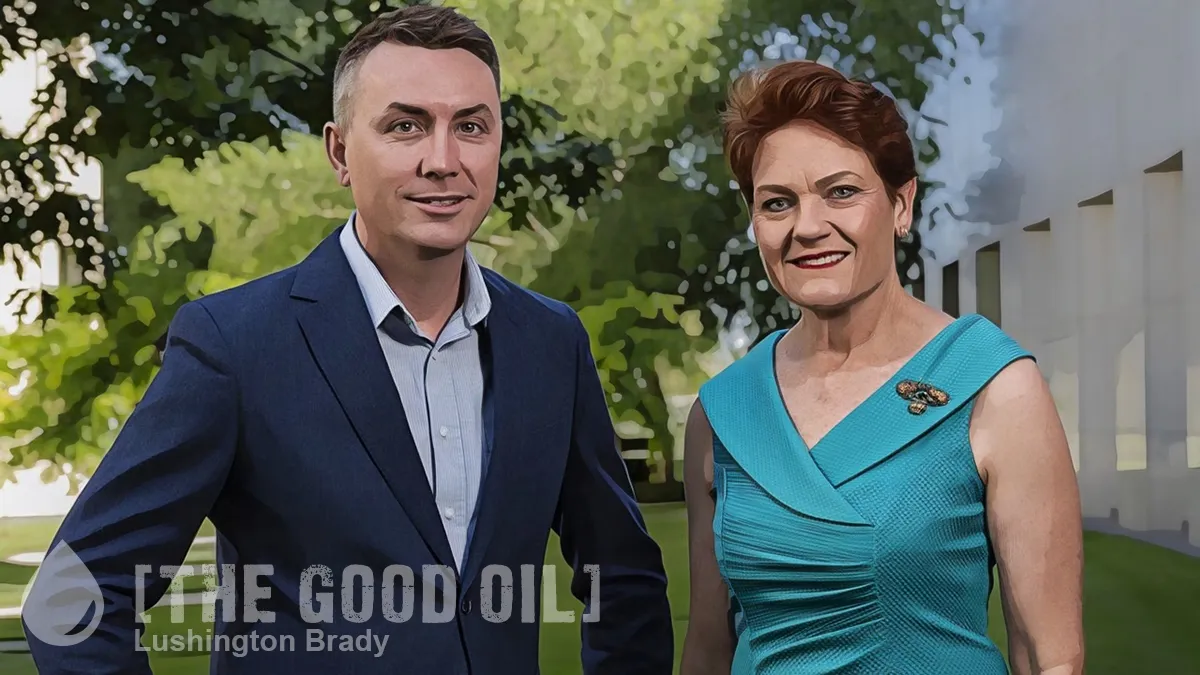Table of Contents
James Hol
While always avidly following politics and culture, James Hol was not politically active until the overreaction to COVID. In a matter of months, James gained invaluable insight into all levels of government, being heavily involved in Federal, state and local election campaigns.
Conceptually, worker unions are quite compatible with libertarian ideology. Workers voluntarily leveraging their collective bargaining power is a perfectly acceptable free-market response to what can oftentimes be an unbalanced relationship between employers and employees. All libertarians would prefer to see these kinds of voluntary associations dealing with some of the natural consequences that markets create, rather than the coercive and violent state trying, unsuccessfully, to regulate them away.
LABOR MAFIA
However, the true purpose of the vast majority of mainstream unions in Australia is obvious to anyone who is politically active: to funnel money and membership towards the Labor Party. It is no secret that the only way to advance in the Labor Party is to become a union leader; it’s not even an open secret, it’s basically written on the door. Union thugs also provide a handy tool during election season: ripping down opposition corflutes and intimidating volunteers at polling stations.
The vast majority of contributions to the Labor Party come from the unions
This is not to say that there aren’t any good unions out there; plenty of unions do great work, but they are usually smaller and are eventually intimidated out of the space. Similarly, it is possible that in the time union leaders spend factionalising, politicking and satiating their political ambitions, they occasionally help a few workers along the way. But politics always comes first.
The recent news tying the Construction, Forestry and Maritime Employees Union (CFMEU) to criminal organisations and intimidation tactics came as very little surprise to anyone who has spent even five minutes in politics. The only thing I was surprised about is that people didn’t know this already. The day we get to see the unions fully exposed, and their relationship with the Labor Party properly examined, is probably still a long way off though.
UNHOLY TRINITY
There is one other player in this tripartite corruption ring: industry super funds. In 2019, industry super funds paid over $10 million to Labor-aligned unions – up from just over $4 million 10 years earlier. By 2030 it is projected the funds will be pumping over $30 million per year into unions.
Industry super funds are far and away the biggest political donors in Australia. However, these aren’t donations: it’s just plain corruption. Industry super funds pay their members’ retirement money to unions for vastly inflated and vaguely worded services: sponsorship fees, marketing costs and events. The industry super funds are adamant these are not political donations but legitimate expenses, which the Australian Electoral Commission happily goes along with.
Additionally, industry super funds invest heavily in union-backed infrastructure projects. The unholy trinity of the industry super funds financing the unions through the retirement savings of millions of Australians, which then go on to funnel that money to the Labor Party, is not only blatantly stealing from hardworking Aussies, but also propping up an inflated sector of the economy with politically influenced investment. These funds are also some of the most prolific when it comes to shareholder activism, driving much of the ESG-investing movement and wokification of corporate Australia.
Union thugs also provide a handy tool during election season
PAST PERFORMANCES
Prime Minister Albanese was heavily criticised for reneging on his election promise to stay out of our super, but the truth is that the Labor Party has been getting a big chunk of our super for years. The recent changes only further entrench industry super funds as the default choice for most Australians and push people further from having some degree of autonomy via self-managed super funds (SMSFs).
While much noise was made about the tax changes towards super, and rightly so, the payday superannuation guarantee starting from 1 July 2026 went past largely unnoticed. A change from which smaller funds and SMSFs will see largely no benefit.
The real beneficiary of these changes is ultimately the Labor Party. The vast majority of contributions to the Labor Party come from the unions – that almost goes without saying. Only 15 per cent of Australia’s workforce is unionised, yet the CFMEU alone donated over $3 million to the Labor Party in the last election year.
This article was originally published by Liberty Itch.









